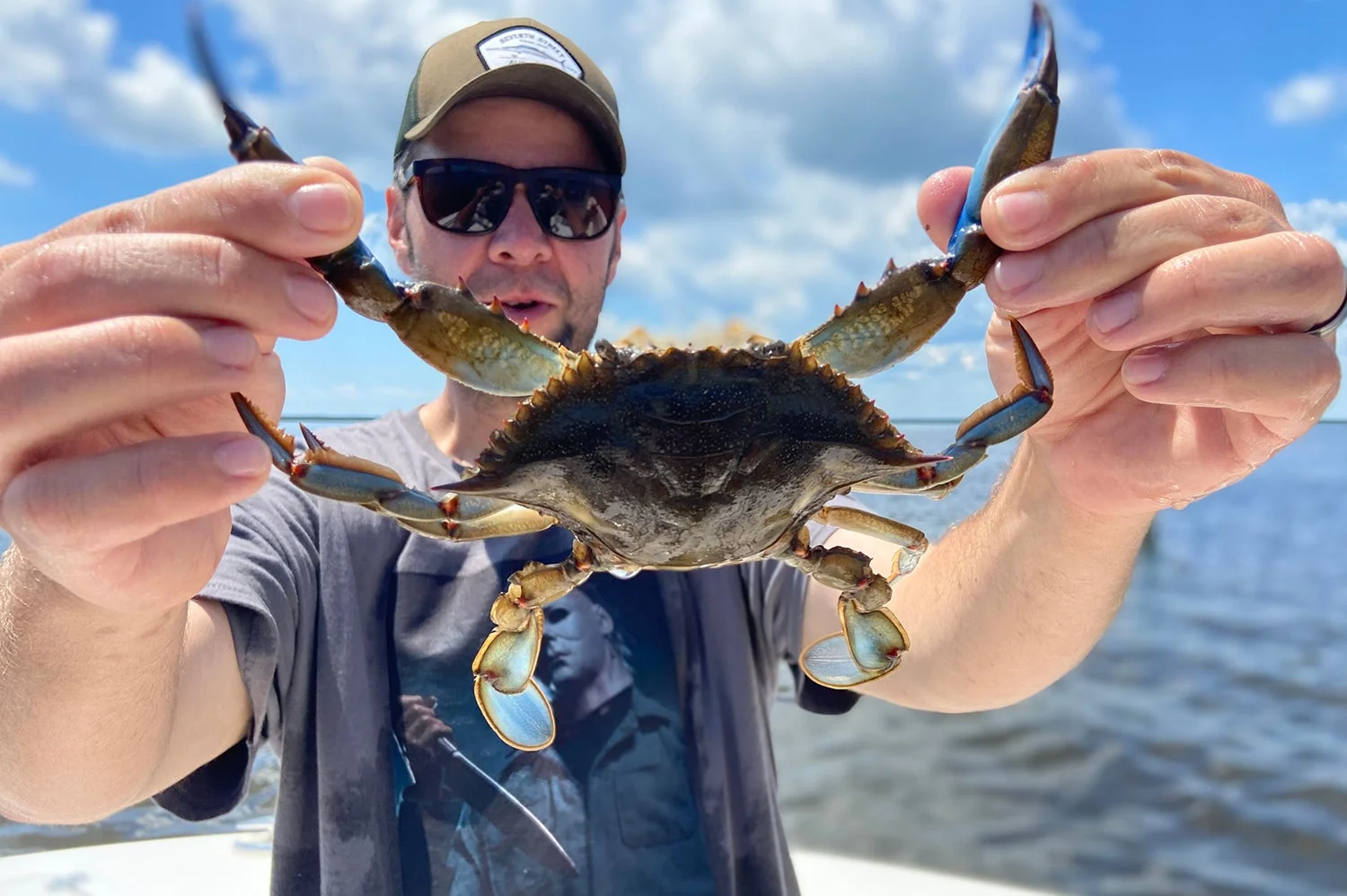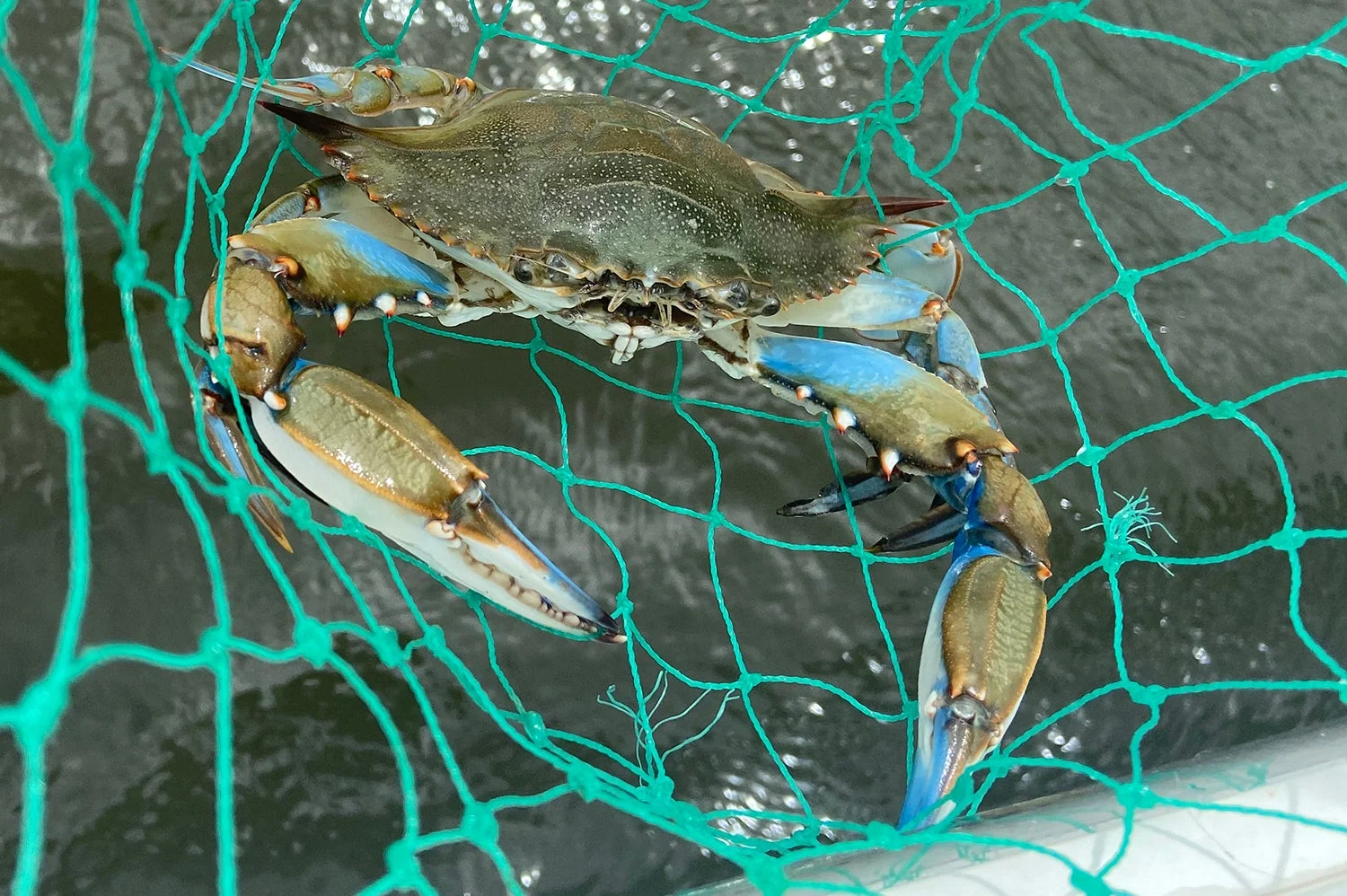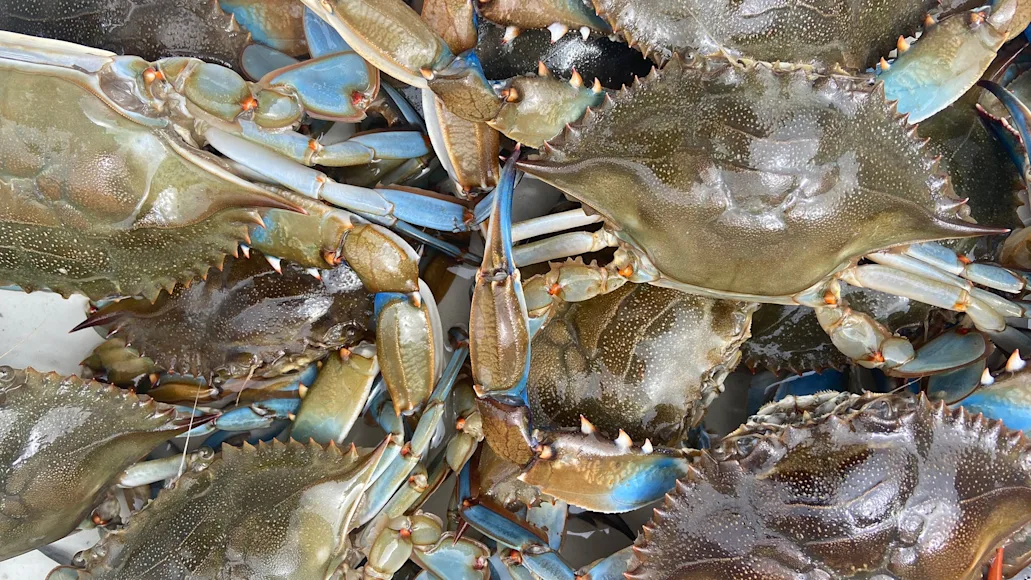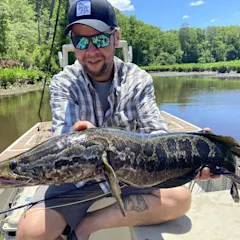WHAT SMELLS REMIND YOU of childhood summers? The sulfury smoke of a sparkler that just burned out? The nostril-stinging water at the public pool, loaded with enough chlorine to strip paint? Maybe it’s as simple as an overcooked hotdog on a charcoal grill. For me, it’s the combination of raw chicken fat and Avon Skin So Soft.
The idea that the fragrant bath oil repelled greenhead flies was passed down for generations and accepted as fact in my family. My grandfather had a bottle stashed in every tackle box and glove compartment he ever owned, and he’d slather me in the flowery potion just before hopping on a dilapidated wooden rental boat at Trixie’s Marina. It took at least a dozen pulls to get the 9.9 horsepower outboard to turn over, but eventually she’d kick and off we’d putter to roast in the sun on New Jersey’s Barnegat Bay. Despite the Skin So Soft, or maybe because of it, the vicious greenheads did their worst, but if the blue-claw crabs were tugging at the chicken on our handlines, the joy overrode the sting. To this day, my summer isn’t complete until I’ve suffered through the bites of these nasty bloodsuckers to fill a bushel basket with crabs.

The author hoists a trophy. Courtesy of Joe Cermele
Crab Crazy
Blue-claw crabs exist from the Canadian Maritimes to Argentina, as well as throughout the entire Gulf of Mexico, yet despite that sprawling range, their value as a recreational target and food source is confined to specific regions. In Florida, for example, I’d bet that more people buy blue claws for tarpon and permit bait than they do for eating. It’s hard to blame them, though, when they’ve got bigger, meatier stone crabs and spiny lobsters crawling around. You can find a good blue-claw boil in New Orleans, but even there, they play third fiddle to shrimp and crawfish. It’s not until you hit the Virginia state line that blue crabs begin to come into their own as a menu item. Keep trucking north into Maryland, and suddenly you can get crab-themed T-shirts and socks at any highway rest stop, or crab cakes at a Southern Maryland Blue Crabs
minor league baseball game, or crab ice cream
at the Dairy Queen.
In the heart of Chesapeake Bay crab country, hundreds of thousands of people pony up gobs of money every summer for all-you-can-eat crab feasts, in which wave after wave of blue claws steamed in Old Bay seasoning are dumped on long tables covered in brown paper. (For the same reason I never order blue crab at a restaurant, I’ve always thought this was a huge waste of money. The work it takes to extract a blue crab’s sweet, delicious meat probably burns more calories than you ingest from eating them, so you can never get full or your money’s worth, not to mention that eating them is such a messy process that it should only be done within 20 feet of a shower, not out in public.) Full-blown blue-crab mania makes a hard stop at the Maryland line, but you won’t find a bait shop along the Jersey coast, where I spent my summers growing up, that doesn’t sell crabbing supplies. We may not have a crab restaurant on every corner, but in my family securing our own crab feast multiple times a season was a tradition.
Into the Blue
Crabbing as a kid meant I was on vacation. I’d been going with my mom and dad since I was 3, but the year I turned 7, my parents started renting a house on Long Beach Island, across the street from a bulkhead on the bay so they could sit on the porch in their pajamas with their coffee and watch me crab. Every morning I’d gather my traps, load them with chicken or menhaden, which are known locally as bunker, and hoot and holler each time I put another keeper male crab—or Jimmy—in my bucket. However many I had at the end of each day went into the stockpot and then got added to the growing haul in the refrigerator. During our two-week vacations, friends and family would pop in, and out would come the bowl of cooked crabs. They were never a meal. They were hardly an appetizer. They were merely a reason to sit down together for a bit, crack a few claws, pick a body or two, and savor the flavor of the bay while you visited. If you were 21 or older, it was practically illegal to do this without a cold beer.
My Italian grandfather, however, was never satisfied with just picking at them, so when he came on vacation, his mission was to catch enough Jimmies to fill his home freezer. He would go on and on about the crab “gravy” he’d be eating in November, the crab salad in December, and the crab cacciatore for New Year’s. I honestly don’t remember us ever catching enough to achieve any of his long-term goals, but going out on that janky rental boat with him is how I learned the art of handlining crabs, which is, as far as I’m concerned, the most fun way to target them.
There’s an art to handlining. You drop a weighted bunker head or piece of chicken to the bottom in 3 to 6 feet of water. Then you give them some soak time, letting the scent spread out and call in the blue claws. When you grab a line, you pick it up slowly, feeling for a tugging crab. The objective is to raise the blue claw close to the surface, where you can quickly scoop it in your net. But you must be deft. The crab has to stay preoccupied enough with the meal that it doesn’t realize it’s being lifted. As soon as it sees the sun—or you staring back at it—it’ll let go. You’ve got one shot at netting it, and you’d better be fast and accurate. In my family, a botched net job never went unpunished. You’d have to endure lots of ribbing until you redeemed yourself or, better, until the primary ribber missed one, too.

A blue claw on its way to the stockpot. Joe Cermele
Bushels of Fun
One of the great things about crabbing is that you don’t need a boat. Drop some chicken on a string off any dock, pier, wall, or bulkhead on any bay from Galveston to Boston, and there’s a good chance a blue claw will find it. Even better, take someone along who maybe hasn’t ever had the pleasure of harvesting his or her own food from the water.
Take my wife. When we first started dating, more than 20 years ago, I tried like heck to get her excited about fishing. One ill-fated bluefish party-boat trip and several puking fluke trips later, I realized it just wasn’t going to happen. But the bay is calm, and while you’re waiting for a crab to nibble, you’re sunbathing; if you get too hot, you jump in for quick swim. Some of my fondest memories of our early years together are of us crabbing, first on the same rickety Trixie’s rental boats I ran with my grandfather, and later on my own boat when I finally got one. Christen is even now trusted with my secret chicken recipe—thighs marinated in a bag with a half cup of garlic powder, a half cup of vegetable oil, and a full cup of dollar-store Parmesan cheese. The smell of it still makes her gag a little, but she knows nothing fills a cooler faster.
Nowadays, our kids know the smell of “stinky chicken” and help make it the day before we go crabbing. I’ve managed to instill a love of nature in my 8-year-old daughter, but fishing? Not so much. Crabbing, on the other hand, is one of her favorite things, partially because she loves their flavor, but also because she’s competitive. Heaven forbid she doesn’t catch the biggest blue claw of the day or get to eat the biggest one even if she didn’t. All these years later, crabbing is still an essential part of my summers, though now the blue-claw grounds have shifted south to Ocean City, New Jersey, where my in-laws have their beach house. They have a new boat, too, and while each year I do my best to help my father- and brothers-in-law get better at fishing, they’ve already mastered the art of the crab line. The family tradition has been passed on, and while the Skin So Soft has been replaced with ThermaCells and sunscreen, we walk away just as sweaty and greasy as ever, with just as many blue claws in the bushel basket.
_Read more F&S+
stories by Joe Cermele:_• The Big Time: How to Wade-Fish Sprawling Trout Rivers
• Fish Mounts, Snakeheads, Punk Rock, and the Admirable Honesty of A-holes






